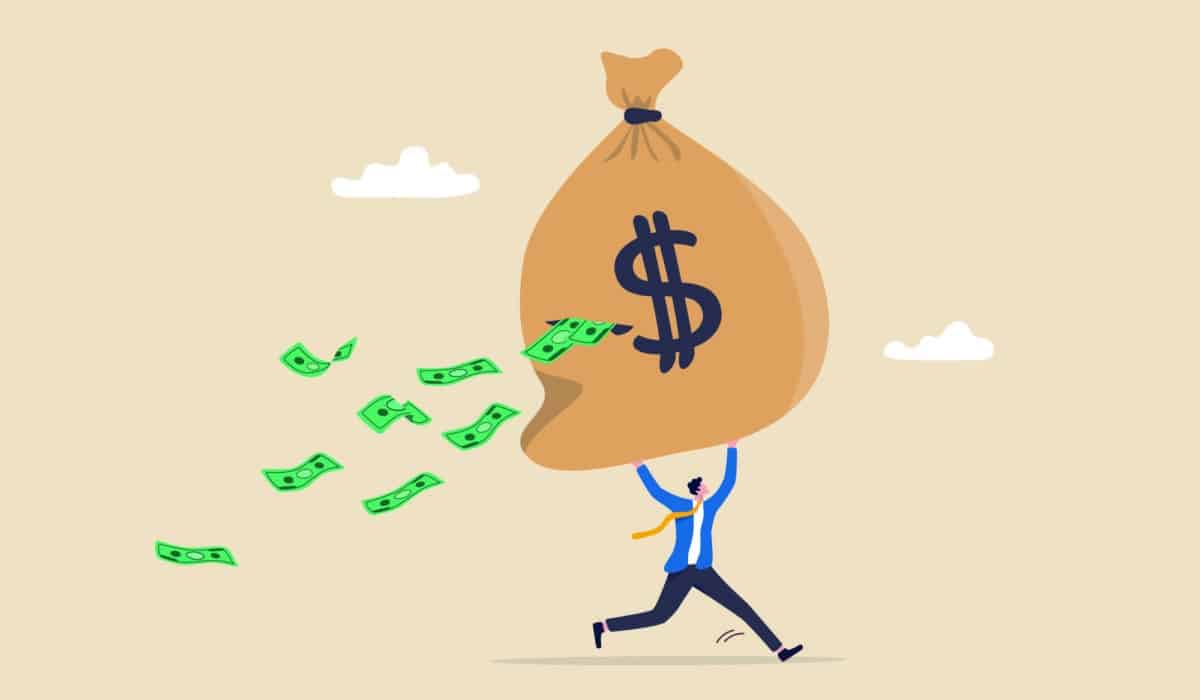Most entrepreneurs set out to sell their business at least in part because it will grow their wealth.
Yet the sale process can be so all-consuming — tending to due diligence, shoring up your team so they’re ready for the transition, and more — that sometimes entrepreneurs neglect to fully prepare their personal financial situation for the influx of cash.
“During the process of the sale, it’s so intense, it’s so busy, and it’s sort of high stakes,” said Brian Dean, who sold Backlinko, a blog and course business about SEO, to Semrush in early 2022. The transaction itself takes so much focus, he said, and “you want to make sure everything goes well, so you don’t have a lot of [free] time to prepare for when the money hits your account.”
Selling a business often means a windfall, a meaningful increase in your net worth. Not planning ahead could mean sacrificing more than necessary to taxes, and you could miss opportunities to save and invest in a way that supports your goals for the future.
We talked with founders who’ve sold their businesses and to financial advisors who work with founders to get their advice on how to prepare for a windfall coming your way. While the steps you should take vary depending on your own financial situation and how much you stand to earn from selling your business, here are some financial planning steps to consider.
1. Hire a financial advisor or team
When you get a windfall like the proceeds from selling your company, investment and tax planning are your main considerations. There’s no blanket advice to follow to do this well because your own personal financial situation factors into each decision.
That’s why working with qualified experts like a financial advisor or team is the best way to untangle your complex options and figure out how to make the most of the money you have coming to you.
What’s enough of a cash influx to justify hiring a financial advisor?
“No windfall is too small,” said Matthew Fischer of the wealth advisory Chicago Partners. “Your strategic planning can make significant long-term differences with regards to tax savings as well as returns [on investments].”
As you’re preparing to sell your business, an advisor can both help you maximize how much you end up taking home after taxes, and determine where you’ll direct your money based on your financial goals. You might set some aside to build a house, for example, or invest in 529 accounts to fund education for your children or grandchildren.
While an investment advisor is a good first step, having a team of financial professionals in your corner is even better, including an accountant (CPA) who can help with your personal tax strategy and an attorney who can help with estate planning. Many financial firms -– including two of our partners, Chicago Partners and Cresset Capital — offer what’s called a “family office,” whereby they bring together all of these different financial professions for you under one roof.
Whether you’re talking investment, taxes or estate planning, remember the bigger goals you’re after. Your conversations with financial advisors aren’t restricted to numbers and spreadsheets. You should let them in on your family’s long-term goals and dreams, so they can run the magic numbers to help you achieve them.
“Outside of you and your spouse, no one should know your goals and objectives better than your financial team,” Fischer said.
2. Understand how the structure of your business and your sale affect the taxes you’ll pay
Both the structure of your business and the structure of your sale will affect how much you owe in taxes.
When you’re preparing to sell your business, it’s probably too late to amend your company structure — you’ve got to think ahead for that — but the structure of your sale might be at least partly in your control.
If your company is a C-Corp, for example, and has been for at least five years, you might have the option of leaning on QSBS, or qualified small business stock, an exemption in the tax code that can free you from paying capital gains tax, which can lead to significant savings.
If your buyer is looking for an asset sale, or your business is set up as an LLC or another structure that is best suited for an asset sale, you’ll likely see capital gains taxes, which can be up to 23.8%, depending on your income.
Which brings us to…
3. Plan carefully for income and capital gains taxes
Knowing how to best structure your sale is the first step here. But it doesn’t make sense to look at your sale in a vacuum — you also have to understand how your personal financial situation plays in, especially if your household has other sources of income as well.
An investment advisor along with a CPA can help you shield (legally, of course) as much of the sale from taxes as possible, maximizing how much you take home. That could include tucking some of the money into investments and determining whether you might balance your tax liability over several years.
Understanding these levers ahead of your sale might lead you to negotiate certain deal terms that are favorable to you. For example, while cash up front tends to be appealing, you might be more amenable to the idea of payouts over several years if that will decrease your tax burden.
Investment and tax planning was the main planning step Chris Coyier took for his personal finances ahead of his sale of CSS-Tricks, a content business that offered education to front-end developers, to DigitalOcean in March 2022.
“I knew I’d be owing taxes on [the sale] come next tax year, so I had a plan to tuck some of it away into safe-but-mildly-profitable short-term investments, basically bond market,” Coyier said.
Other types of tax planning might make sense, too. For example, a mid-7-figure sale could increase your net worth so you suddenly own an estate that would be subject to an estate or gift tax (an amount that starts at around $12 million for 2022).
4. Consider private investment
If your windfall puts your investable assets up to at least $5 million, an advisor might help you consider private market investments, suggested Oliver Rose, founder of Cresset Catalyst at Cresset Capital Management.
That amount makes you a qualified purchaser under SEC regulations, which opens the opportunity to invest in certain types of funds that aren’t registered by the SEC and aren’t accessible to other investors, including shares issued by privately held companies and startups.
He cautioned, though, against putting too much of your money too quickly into risky investments and becoming “too illiquid.”
“Many founders are quick to reallocate their windfall to illiquid or risky investments, such as long-term, direct early-stage private investments, crypto, etc., without the proper planning,” Rose said.
A wealth advisor can help you figure out how much you should keep in less risky and more liquid investments based on your own personal planned spending and long-term investment plan.
5. Look to your next business opportunity
Many founders use proceeds from the sale of one business to fund their next opportunity, with the goal of generating more wealth over time.
If you see this in your future, work with your advisor to make sure that money is accessible as your own seed fund when you need it. In many ways, this is a form of investing — in yourself.
That’s what Ramon Van Meer did when he sold Soap Hub, a content site about soap operas, for nearly 8 figures in 2018. While it all worked out — he successfully built one of the businesses he bought, Alpha Paw, to tens of millions in revenue — he wishes now that he approached his post-sale phase differently.
“When I sold the business and I got the money… Looking backwards, I actually should have taken a break and actually thought about, what’s going to be my next step? Instead, I bought several online businesses,” he said on the Acquiring Minds podcast.
Those businesses were not related — one was e-commerce, another content, and yet another SaaS — and he couldn’t share resources amongst them, he said. “I wish I really more thought it through.”
6. Leave space to celebrate
“Take some time to enjoy the event — within reason!” Rose said.
You’ve been working hard building a business, and the lead up to a sale requires even more time and energy on top of your day-to-day work. Make room to celebrate and rest after the deal is done. And enjoy your windfall — just do it strategically.
“If there is a one-time trip [or] purchase… work with an advisor to make sure that is incorporated into your plan and doesn’t jeopardize your long-term financial well-being,” Rose said.
We’re reporters, not financial advisors. If you need help with financial decisions, please hire a finance professional. The information contained in this piece is provided for informational purposes only, and should not be construed as financial advice.



